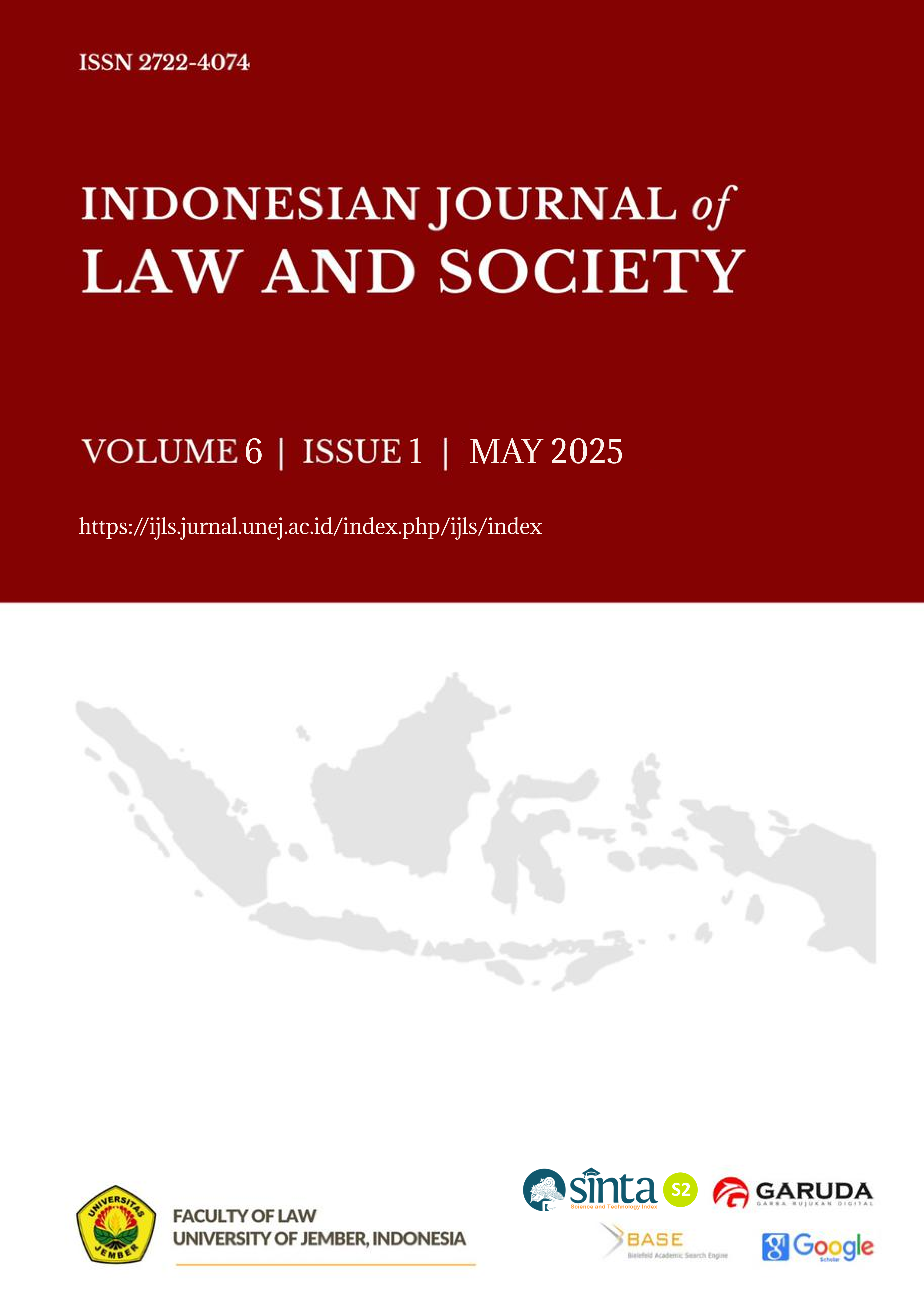Important Announcement: Updated Publication Schedule
Dear Readers, Authors, and Researchers,
We are pleased to announce that the publication schedule for our journal has been revised. Our issues will be released in the months of May and November. This adjustment has been implemented to allow for a more deliberate and comprehensive editorial process, ensuring that each edition meets the highest standards of academic and professional excellence.
We extend our sincere appreciation to our readers and contributors for their continued support and engagement. We trust that this refined schedule will further enhance the quality and impact of our publications.
Best Regards,
Indonesian Journal of Law and Society Editorial Team


